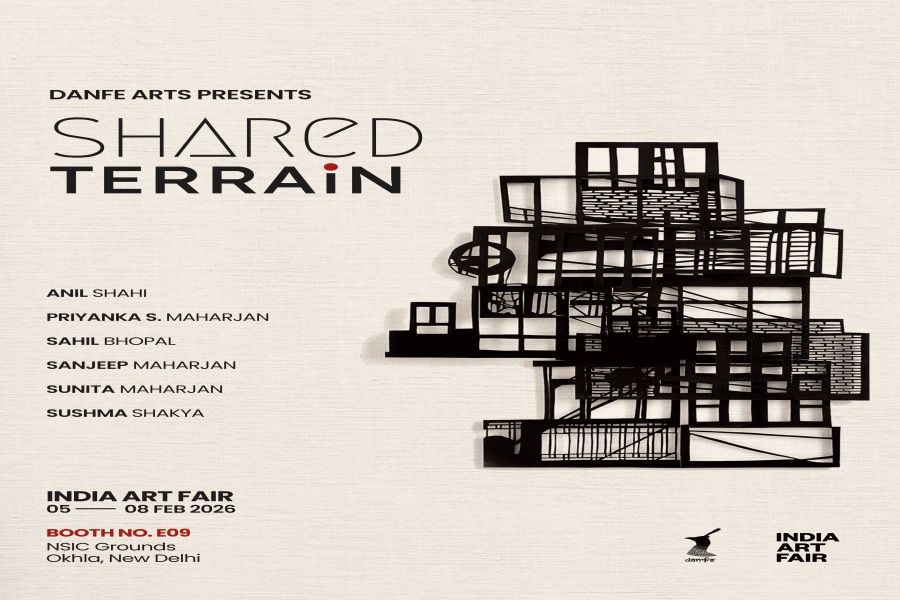Danfe in Jhamsikhel, Lalitpur, with its creative handbags and fancy dresses, feels much more than just another store from the moment you enter. It’s charm is enhanced by the often heard laughter of young women behind the sewing machines. After the devastating earthquake of 2015, the project Danfe was created to empower marginalized women through tailoring and leadership training. The clothes and accessories that were made by these women throughout the training period are displayed and sold at the showroom in Jhamsikhel.
“The women beneficiaries here are not only affected by the earthquake but are also vulnerable to human trafficking and domestic violence. So, they had to be emotionally and psychologically strengthened very carefully,” says Aditi Khanal, project coordinator at Danfe.
While many of the educated youths in our country were dreaming of building their own careers and exploring the outside world, a group of eleven fresh graduates in Social Work envisioned creating a difference in the lives of people around them. With the hope of building a nation with cooperation and togetherness, they established their Non Governmental Organization (NGO), Saath, in 2004. Danfe is a project within Saath.
Danfe Arts to debut at India Art Fair 2026 with six Nepali arti...

According to Khanal, every year Danfe hires about 30 women beneficiaries from Sindhupalchok, Kavre, and Makwanpur who are still in the process of rebuilding their lives post the the earthquake. The project gives young women tailoring skills as well as other confidence building initiatives to sustain their livelihoods. These women go through a process of ten-month long training where they learn tailoring, self worth, and leadership qualities.
“Most women are shy and introvert in the beginning,” says Kritishma Karki, executive director of Saath, “After ten months of training, they become bold and confident women.” The counselling sessions are also an important aspect of the training process. Through group and individual counselling sessions, women are not only taught to realise their self worth but it also helps women relieve their stress and overcome the bitter memories of the past in case of any prior incident of sexual violence.
“Danfe aims to make women realise their potential as well as recognize their right to live a life with dignity. Women are also made aware that they are not a passive part of the community but an important aspect of development,” says Karki. Working with marginalized women in order to make them able to contribute in the society is an important aspect of Danfe. This programme encourages women to do something as an individual and create their own unique identity. “The women are really happy when their tailored products are sold at our store,” says Khanal.
The products made by these women are sold at their showroom in Jhamsikhel and in the international market as well. The fund raised goes to children who have been affected by the earthquake. Danfe also has a follow up mechanism which ensures that the products are sold in national and international markets if these women do not find a market for their products in their villages. These women beneficiaries are even given business management classes that facilitate them to handle their own businesses, should they choose to do so.
“We not only provide our beneficiaries with tailoring training but also enable them to become entrepreneurs in their own villages once they go back,” says Khanal. Most women who go back to their villages open their own tailoring shop, become entrepreneurs, or initiate small tailoring businesses.
Danfe being the national bird of Nepal symbolises the unity and uniqueness of the various colors in its body. Likewise, Karki emphasises that Saath selects deprived women from various cultural and ethnic backgrounds who work together and then learn to be independent.
The products made by these women, in the beginning, were sold at a very slow pace as most consumers doubted the quality of goods made in Nepal. According to Khanal, this mindset of Nepali goods being of inferior quality was extremely difficult to change. Yet Danfe aims to produce superior quality products that fulfil the consumer’s demands. This way, Danfe works not only as an organization with a cause but it also focuses on customer satisfaction. From kids wear, small pouches, dresses, kurtis and their very attractive handbags, Danfe makes high quality products that are comfortable and easy to use. With their tagline “Go local Get local”, Danfe intends to create a brand that every Nepali can be proud about while making sure the process of making the products benefits those who need it the most.








































